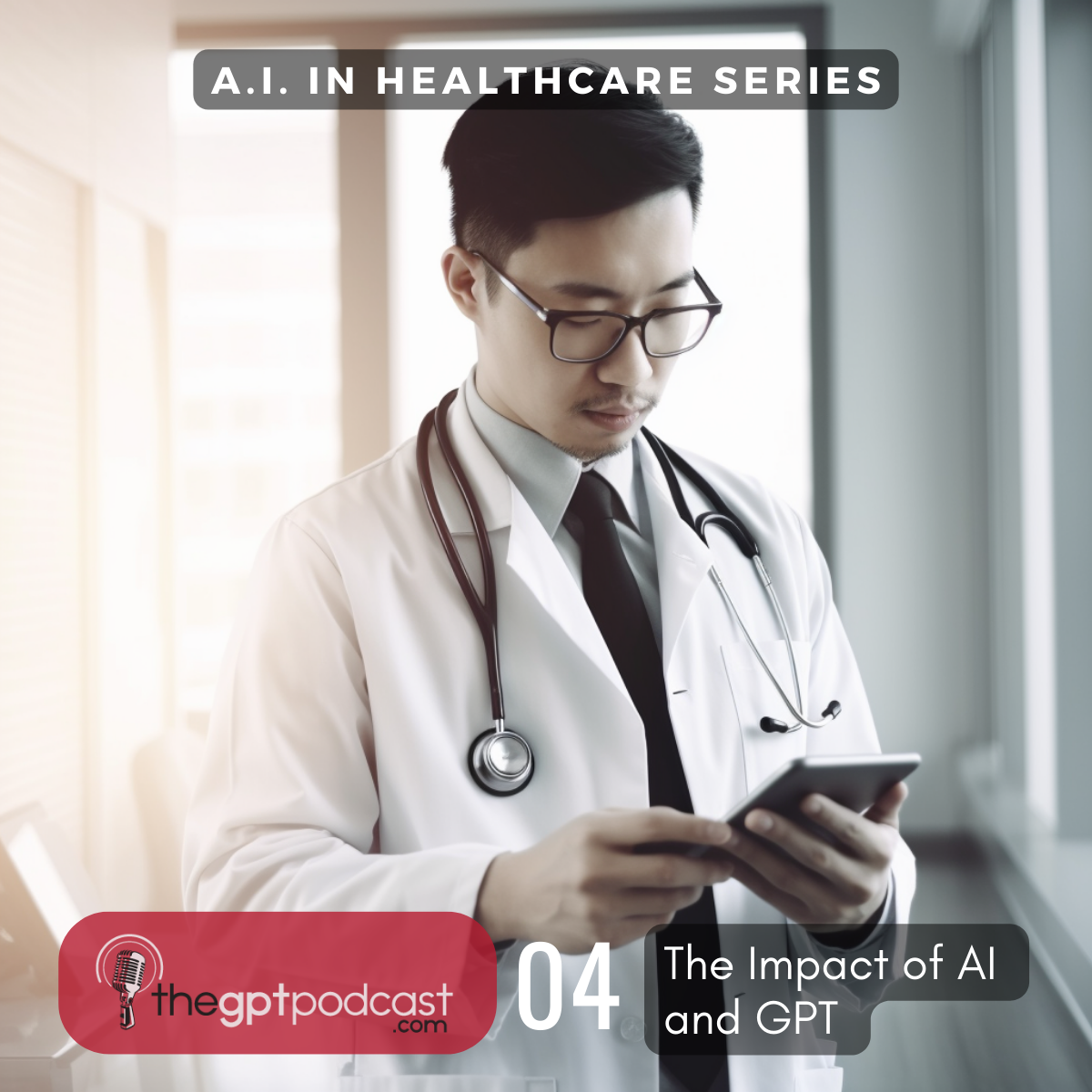Transforming Healthcare: The Impact of AI and GPT
🩺🤖 AI and GPTs are transforming healthcare! From enhancing diagnostics to combating physician burnout, the impact is significant. 🔍🎯👩⚕️🧘♀️ AI automates routine tasks, reduces burnout, and personalizes treatment plans for better patient outcomes. 🧬💡

AI and GPTs: Revolutionizing Healthcare and Combating Physician Burnout
Artificial intelligence (AI) and generative pre-trained transformers (GPTs) are making significant advancements in various industries, and healthcare is no exception. In this episode hosts Harvey and Brooks delved into the role of AI and GPTs in healthcare, discussing leading AI models, ethical considerations, and the potential to combat physician burnout.
Leading AI Models in Healthcare, the healthcare sector stands to benefit greatly from AI and GPTs, with models like Copilot Bing, Bard, BioGPT, GatorTron, and BiomedLM playing a pivotal role. These models are invaluable in answering medical questions, diagnosing patients, and optimizing patient care. By analyzing vast amounts of medical data, AI models can identify patterns and trends that may be difficult for humans to discern, leading to more informed decisions, increased efficiency, and better patient outcomes.
Reducing Human Error and Personalizing Treatment AI models have the ability to process and analyze large amounts of data, resulting in more accurate diagnoses and quicker treatment and recovery times for patients. Additionally, AI algorithms can be used to develop personalized treatment plans, providing targeted therapies tailored to each patient's unique needs. This level of personalization improves the patient experience and can lead to better health outcomes.
Addressing Physician Burnout Physician burnout is a growing concern in the healthcare industry, with doctors facing long hours, high stress, and increasing workloads. AI technology can help alleviate some of this pressure by automating routine tasks, such as reviewing patient records and monitoring patient conditions. By reducing the administrative burden on physicians, AI tools can allow doctors to focus more on patient care and maintain a better work-life balance, ultimately reducing the risk of burnout.
Ethical Considerations and Privacy Concerns As AI becomes more integrated into healthcare, concerns about privacy, accuracy, and potential biases arise. Healthcare providers and organizations must address these concerns by implementing HIPAA compliance measures to protect patient data. This includes data encryption and access control measures. Additionally, AI assistants like Alexa and Siri are becoming more common in everyday life, but users should be mindful of potential privacy concerns and overreliance on technology.
The Future of AI in Healthcare The future of AI in healthcare is promising, with potential advancements in precision medicine and drug discovery. AI's potential to alleviate physician burnout further highlights its importance in modern healthcare. The emergence of virtual medicine and wellness presents new opportunities for AI models, but security, privacy, and regulatory compliance concerns must be addressed.
In conclusion, AI and GPTs offer significant opportunities for improving patient outcomes, increasing efficiency, and streamlining medical processes. As healthcare providers navigate the challenges of implementing AI technologies, they must remain mindful of ethical considerations, HIPAA compliance, and patient safety. By adopting AI responsibly, healthcare providers can pave the way for a new era of medicine that benefits both patients and practitioners alike.

